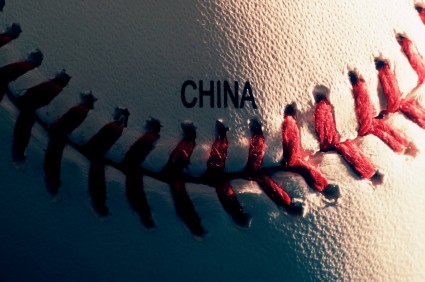
OVER THE YEARS, comparative advantage has been causing dramatic changes in the business world; comparative advantage, to you non-economists, being the ability of someone to produce a good or service better than someone else, typically, by means out of their control, although there are extenuating circumstances.
Due to comparative advantage on the global scale, major staples of American culture have taken their production overseas, where manufacturing costs associated with labor and raw materials are substantially lower. Here are some examples:
- Radio Flyer Wagons
- Levi Jeans
- Craftsman Tools
- Rawlings Baseballs
- Converse All-Star Shoes
- Dell and IBM Computers
- Several Chrysler and General Motors Vehicles
- General Motors Plant in Beijing, China that produces 150,000 vehicles annually
These American tax-paying companies have moved their production locations from the United States to someplace else. Some China, some Latin America. The reason is because of global comparative advantage—they simply cannot afford to pay the American citizens that get together in large groups and demand $30 or $40 per hour for what Chinese companies are paying their employees to do: produce the same product overseas and sell it in the global marketplace for a commensurate amount less. Everyone wants to hate the American companies for this, but here’s the deal—These American businesses could have kept the expensive American labor and gone out of business completely, thus losing everything (including the taxes for the American government), or they could have done what they did, what they needed to do to survive, and continue to patriotically contribute to the country in the form of taxes.
The reality is that with the invention of the Internet and global shipping, along with the monetary exchange rate, there isn’t any way that our manufacturing capability could compete with our overseas counterparts. And no, it’s not because the workers overseas are treated poorly. It’s because what you can buy in America with an American dollar doesn’t come anywhere near what can be bought overseas with the same American dollar.
The global marketplace is a living, breathing, moving thing. Sir Isaac Newton said, “To every action there is always opposed an equal reaction.” This theory holds true in global comparative advantage as well.
While you may be feeling a bit of depression about all the hard-working Americans that are losing their jobs to overseas counterparts (as a good American rightfully should, out of empathetic principle), there is good news. Global comparative advantage has worked in our favor in other ways. For instance, below are a few examples of foreign companies who have found it more efficient to produce their products here in America. The really good news? They employ American workers!
- Toyota, Mitsubishi, Honda, Nissan, Hyundai, Kia, Subaru – 95,000 total American employees
- Toyota Camry – Built in Georgetown, KY
- Honda Accord – Built in Marysville, OH, and Lincoln, AL. The Marysville, OH plant has been open since 1982 and is now the sole global source for the Accord Coupe!
- BMW – Spartanburg, SC - $8.8 million into the state economy – 4.3 jobs for every available position at the manufacturing facilities
Even if foreign companies don’t manufacture their products here, it’s not just the people in the manufacturing facilities that get the jobs. When a foreign product comes into this country, someone has to unload it off the ship, someone has to inspect the shipment, e.g. a customs official. Also, someone has to pick up the shipment and transport it to a facility where it can be sold, people at the facility where it will be sold have to receive the goods, stock the shelves and check you out when you buy it; not to mention that someone must provide fuel for transportation, electricity for the store, and so on.
This is a simplified explanation, but the theory is solid. Although comparative advantage has caused some changes, there is still enough room for everyone in the global marketplace. Business, especially on the international scale, is a game of give-and-take and is much bigger and more powerful than any one of us. The key is that the winners don’t sit down and cry when things don’t go their way—they go back to the drawing board and find a way to climb back to the top.























